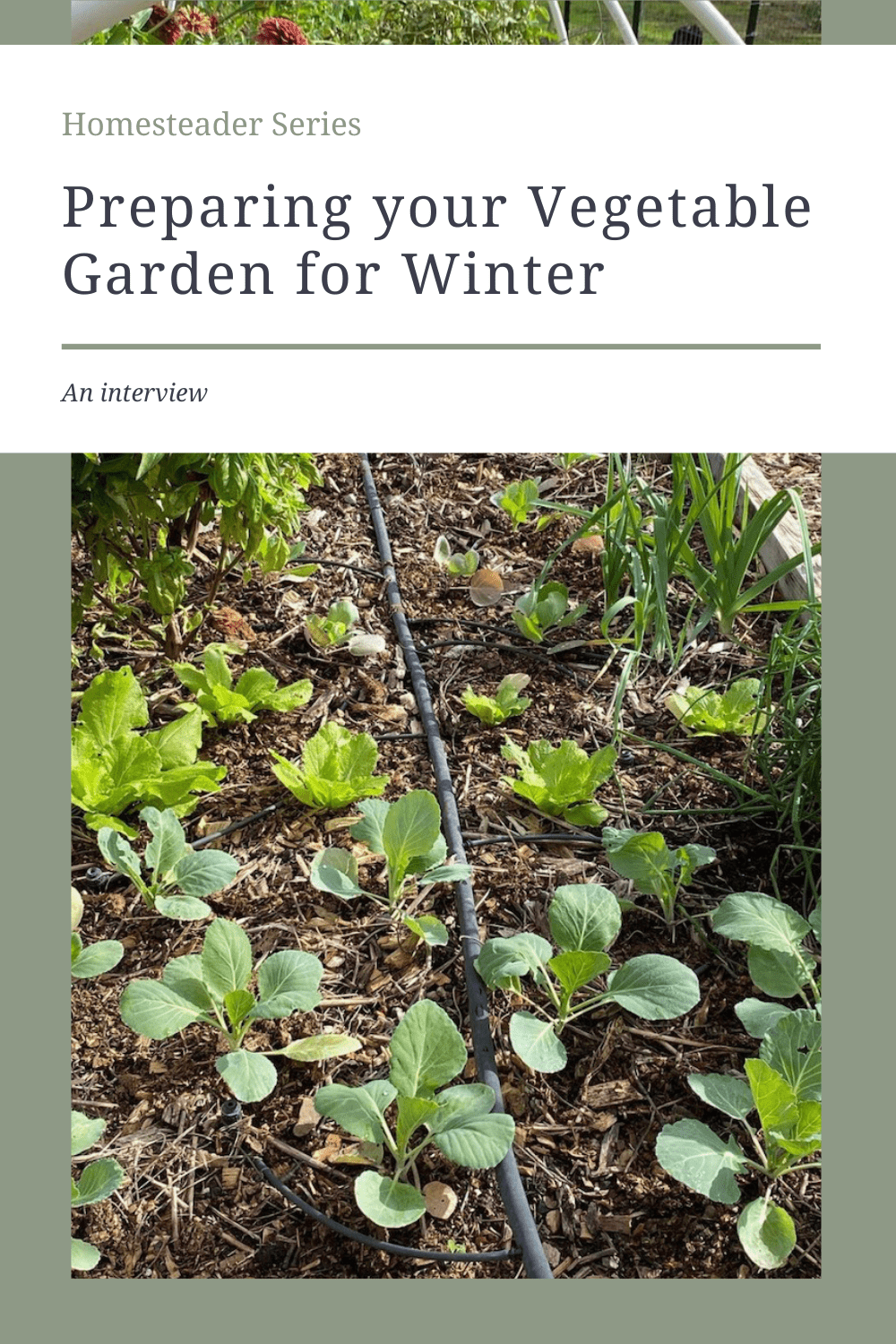
Preparing Your Vegetable Garden For Winter – A Homesteader Interview
The garden is the heartbeat of the homestead. It is the place you spend your entire summer tilling, planting, and weeding. Then fall hits and it is harvest time and you spend the next month picking, canning, and preserving. But what do you do after harvest? How do you begin preparing your vegetable garden for winter? Whether your plan is to have a fall/winter garden or close it down until spring, we are going to discuss it all with our homesteader Charis Scofield.
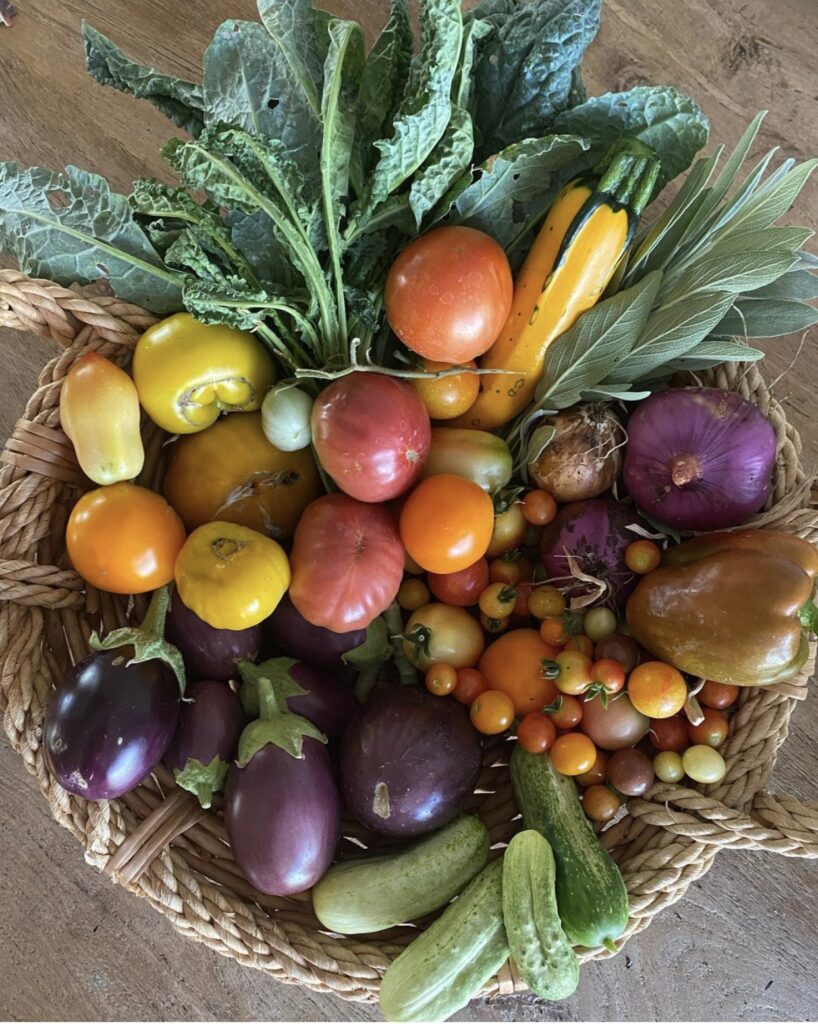
Before we dig into the interview, let’s talk about some of the decisions you will need to make before you start preparing the vegetable garden for winter this year.
To Grow or Not to Grow
Before you decide to put your garden to bed, you need to decide on whether or not you will be growing winter veggies. Winter veggies are a great way to keep yummy produce on the table all winter long, but a winter garden does require a little different care than a warm weather garden.
This year on the homestead we decided to do a late season crop of broccoli, kale, collards, and carrots. When deciding if you want to have a winter garden be sure to keep in mind the shorter days and your ability to manage it with everything that winter brings, like frost and holidays.
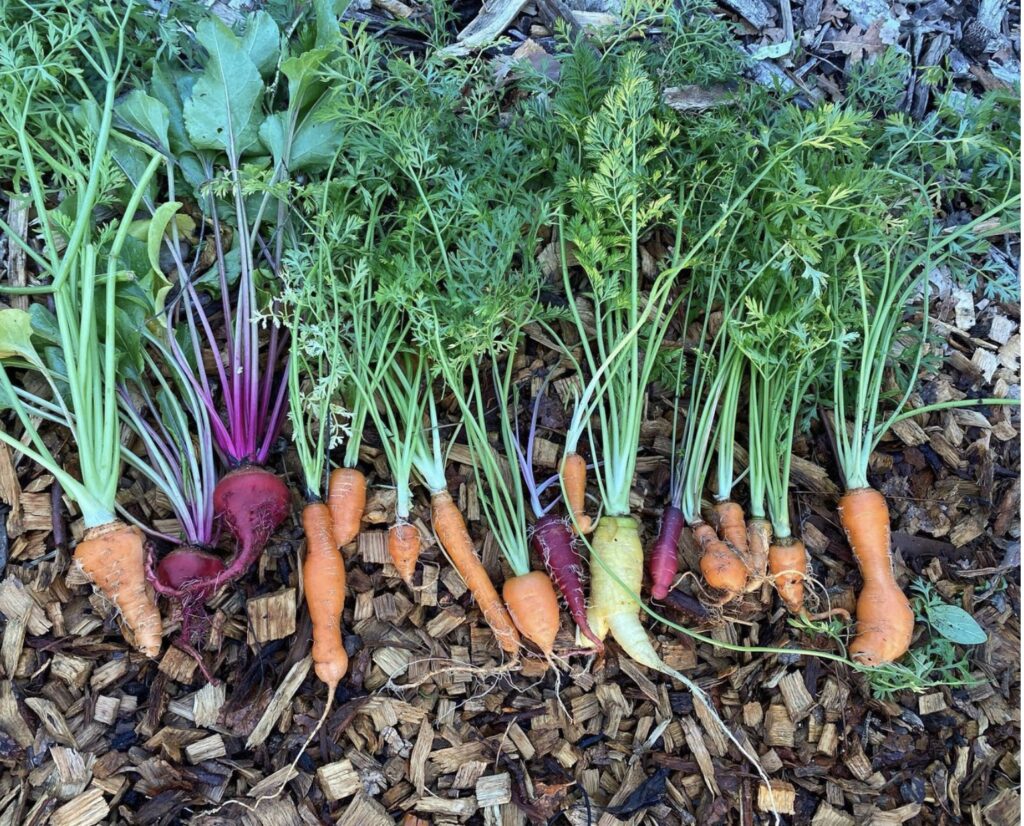
Best Vegetables Grow in Your Winter Garden
Cold hardy vegetables are best for winter gardens. These vegetables can stand below freezing temperatures and a light frost in most cases will leave a sweeter tasting veggie behind. Our favorites include:
- Broccoli
- Kale
- Cauliflower
- Collard Greens
- Brussel Sprouts
- Carrots
- Turnips
- Parsnips
- Cabbage
Now that we have an idea of whether or not our garden will keep growing, let’s meet our homesteader of the week!
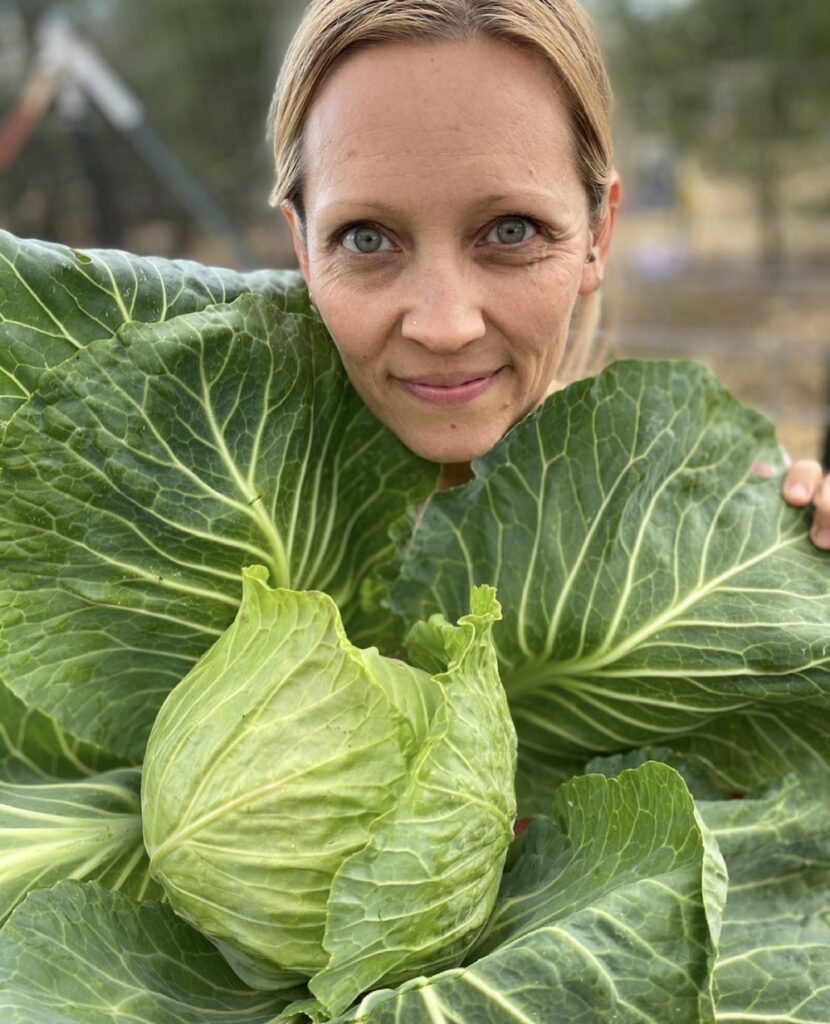
Meet the Homesteader
Charis and her family own a homestead on 3.5 acres in beautiful Northern California. They have been diligently working on their property since purchasing it two and a half years ago.
Their year round garden produces some beautiful veggies that you can check out on her Instagram. Charis also has a Facebook group where you can purchase some of the seeds she grows as well as join and learn from a community of gardeners. If you are interested in learning more about this group reach out to Charis on her Instagram!
Interested in learning more about Charis visit her page here.
Now let’s dive into this interview!
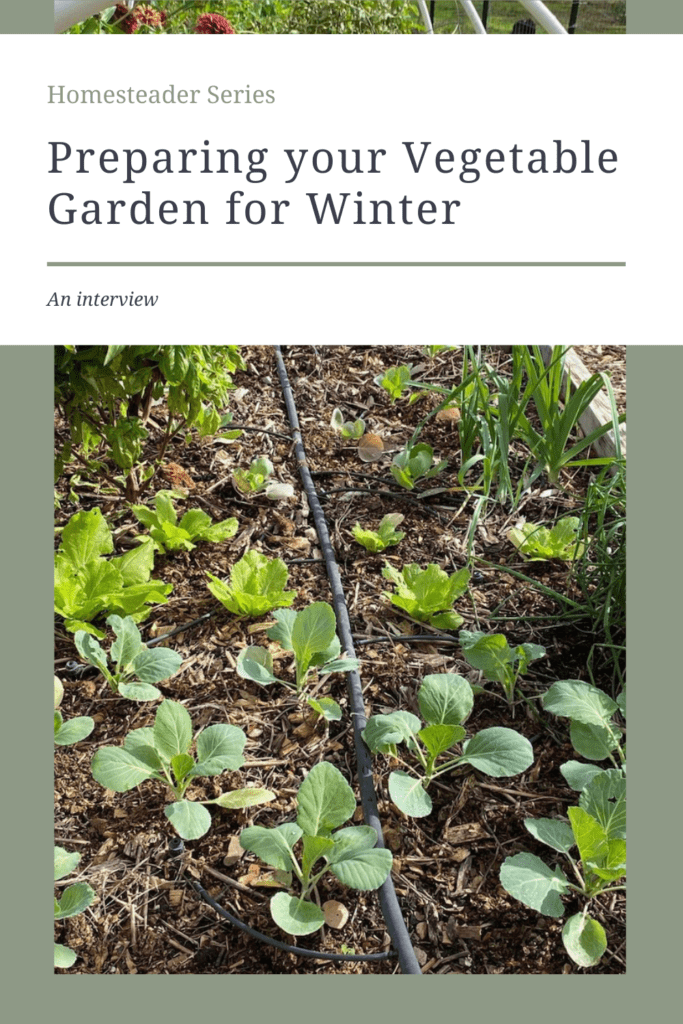
Products for Preparing Your Garden for Winter
Charis will talk about some great products to make winterizing your garden a lot easier. You can find them all here!
The Interview- Preparing Your Vegetable Garden
As homesteaders we are always looking towards the next season. As we head into the long winter months, how do you prepare?
We are located in Northern California right on the line of Zone 9a and 9b, so our winter preparations are a bit different than some other zones as we can grow food through the winter and it is fairly mild for our chickens (we don’t use heat lamps or lights).
The Rainy Season
We do get the majority of our rain in our winter months, so we prep our little family farm for the rainy season. We have added more wood chips to our chicken run for the times they have to stay in if we won’t be home in time to put them up at dusk – this is usually only 1 day a week, and not even always that often as we prioritize them being able to free range our 3.5 acres. We do fall clean up of leaves and add them to our compost pile, and use some in our garden beds as well. We turn off our water irrigation so our property can be mainly watered by the rain, and will turn it on manually for the times that it goes long stretches with no rain, which can happen here.
It is finally burn pile season, so we will do some more clean up on our property and do burn piles on the days that it isn’t windy – we have had a lot of clean up to do in the 2.5 years of owning this property to get it more dialed in as there were a lot of dead or diseased trees that weren’t dealt with by the prior owner.
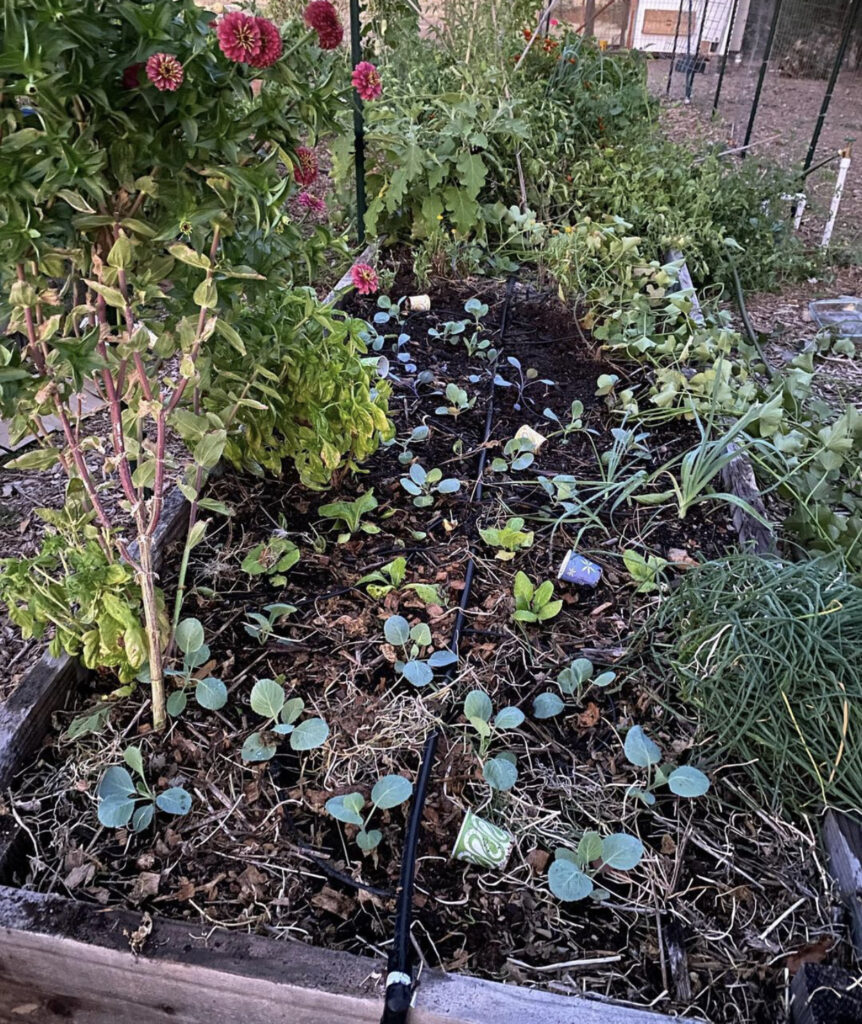
Frost Protection
We bought frost covers for our young citrus trees for the very cold nights and I start watching the weather several times a day to make sure we have them prepped if necessary. We are also putting down a fresh layer of wood chips under all our fruit trees for the winter.
We also added hoops to our garden beds to make covering them more easy if there happens to be a night low enough to make that a good idea.
I am also shopping for some trees to plant, as this is a good time of year for planting trees for our area because it gives them about 9 months to establish before the brutal summer heat hits again.

When closing your garden down for the season, what steps do you take to ensure you are prepared in the coming spring?
We don’t close down our garden, but we transition it to a fall and winter garden. We will do a final harvest of tomatoes soon and cut those plants down to the soil line as they won’t survive the lows to come, but right now they are still producing so we are letting tomatoes still ripen on the vine for a bit longer as we haven’t had our official first frost yet (but watching the overnight lows forecast to plan right).
Cut Back and Harvest
All non-diseased plants we cut back will end up in the compost bins to start making fresh compost for the next year.
I am harvesting a bunch of herbs to preserve – some of my herbs will produce all winter, some overwinter, and some die off completely like the basil. I am hoping to overwinter a few of my peppers – I tried last year and successfully overwintered a Tabasco pepper plant by digging it up and cutting it back, and bringing it into our laundry room. I am thinking of trying to do a couple plants this way as well as overwintering in the garden with the hoops and covering on the super cold nights that aren’t that many.
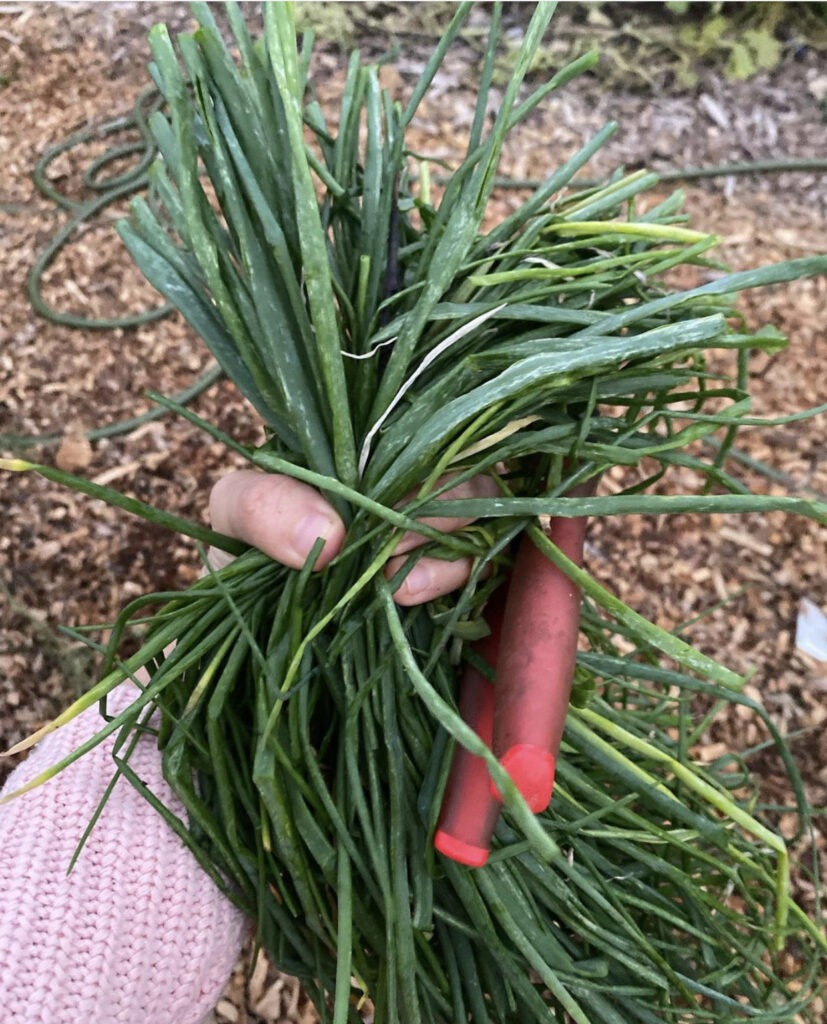
Fertilize
I just fed the beds with compost we made that was ready, and fed all my brassicas with worm castings. I will put a layer of aged wood chips on as a mulch to help with keeping warmth in over the winter and preventing weeds as things warm up in the spring.
We have loved the wood chip method in our garden and under our fruit trees. I am also planting bulbs for daffodils and irises now, as this is the time to plant them for our zone.
For new gardeners, do you have any tips on preparing your vegetable garden soil for the next year? Is there anything new gardeners should avoid?
My tips for new gardeners for preparing the garden for the next year is to compost! It is very easy to compost and anyone can do it – you don’t need a bunch of property to get started.
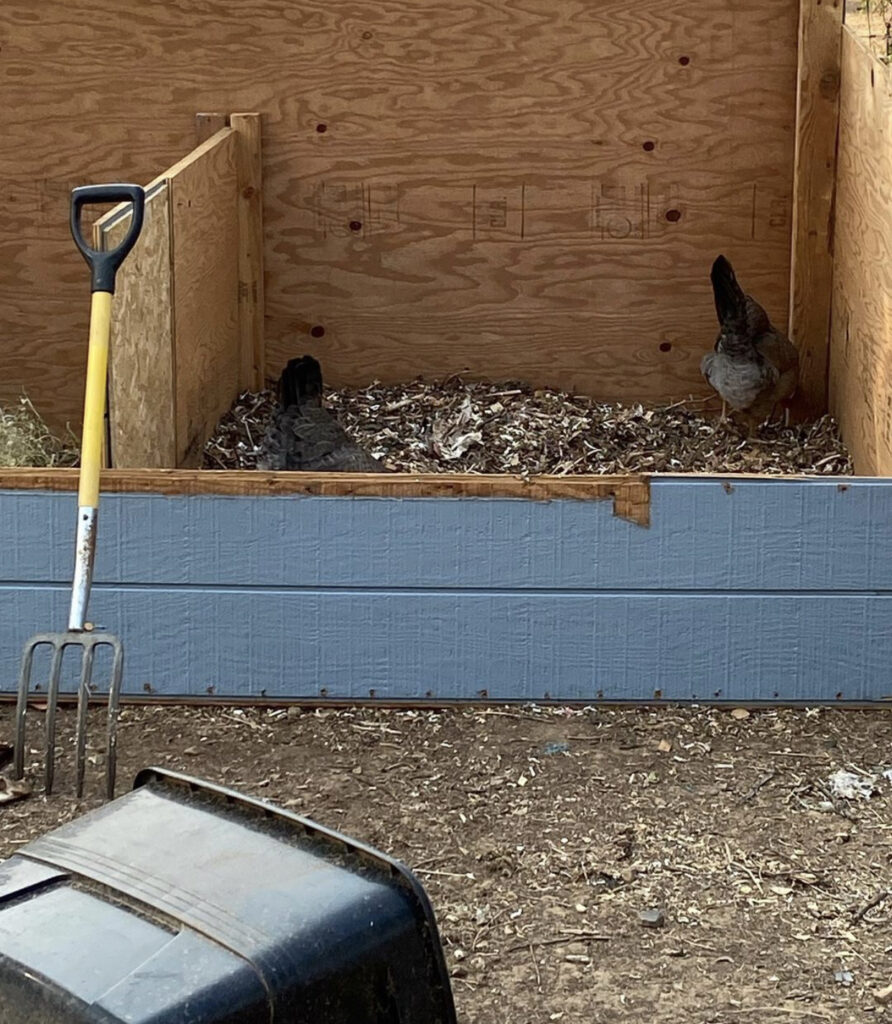
Compost
We have a covered bin from Ikea that we put a liner in and just add our kitchen veggie scraps and coffee grounds into, and I add toilet paper rolls, paper towel rolls, and shredded paper from our shredder to that as well in layers with the veggie scraps. I just put the lid on after adding to it, and there is no smell in the kitchen and adding the layer of shredded paper every now and then helps great to start the break down process even while it is indoors.
We have both a spinning composter we bought off Amazon years ago that would work in even a very small backyard, and also a big 2 sectioned compost bin that my hubby built from scrap lumber we had on the property. We use both methods. When our compost bin under the sink is filled, we go add it to our compost bin and tumbler. We also add in wood chips, smaller branches, fall leaves, garden plants when we clean up garden, and our bedding from our chicken coop with the chicken poop.
We don’t turn it alot, but let our chickens scratch around in it and they do the majority of the turning for us. It has been an amazing way to feed our soil without spending a ton of money on buying new compost each season in bags or from landscape companies.
We have had to buy some to supplement at times, but we are focusing more and more on making our own compost to have sustainable gardening and keeping our soil healthy by knowing exactly what is going into our compost.
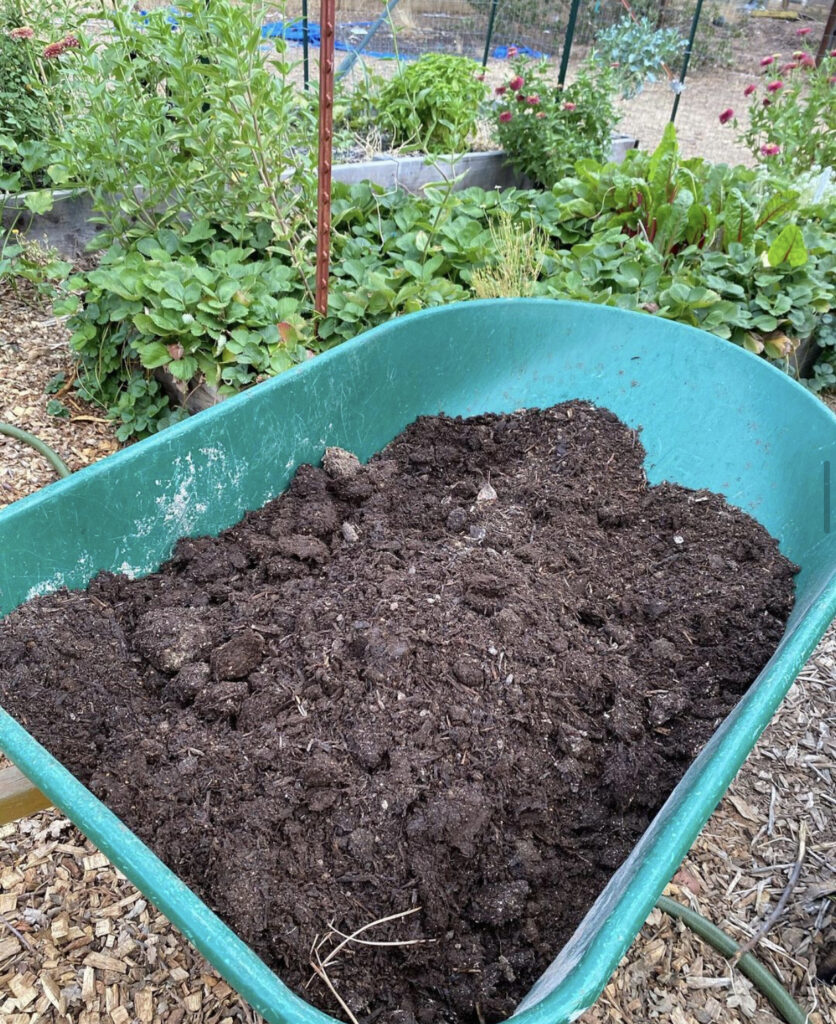
Start Small
I would also encourage new gardeners to start with a few veggies and flowers they love and slowly add so they don’t overwhelm themselves. It is okay to buy starts, but if you can learn to start growing from seed, even just a few types at a time, it is a great money saver. For years I only bought starts from a local gardening friend who would sell her extras, and there is no shame in that until you build the confidence to try to grow from seed yourself! Just start growing something and grow what you love and your family eats.
We grow in raised beds with hardware cloth on the bottom to prevent moles, voles, and gophers, as we have a huge population of them where were are located, and even though that was an upfront expense, it is so worth the level of success that it added without the frustration of all our efforts ruined by the pests digging up our veggies from below.
Also, I would say to start with what you can manage, then add more as your budget, time, and confidence allow. Don’t compare yourself to someone else who may be growing on a larger scale – enjoy the process and realize that it is all a learning process and what you learn now will make you a better more confident gardener in the future – even, maybe especially, your failures will make you grow and be better in the futures.
Be sure to celebrate your successes, as little as they may be – you grew something! That is worth celebrating.
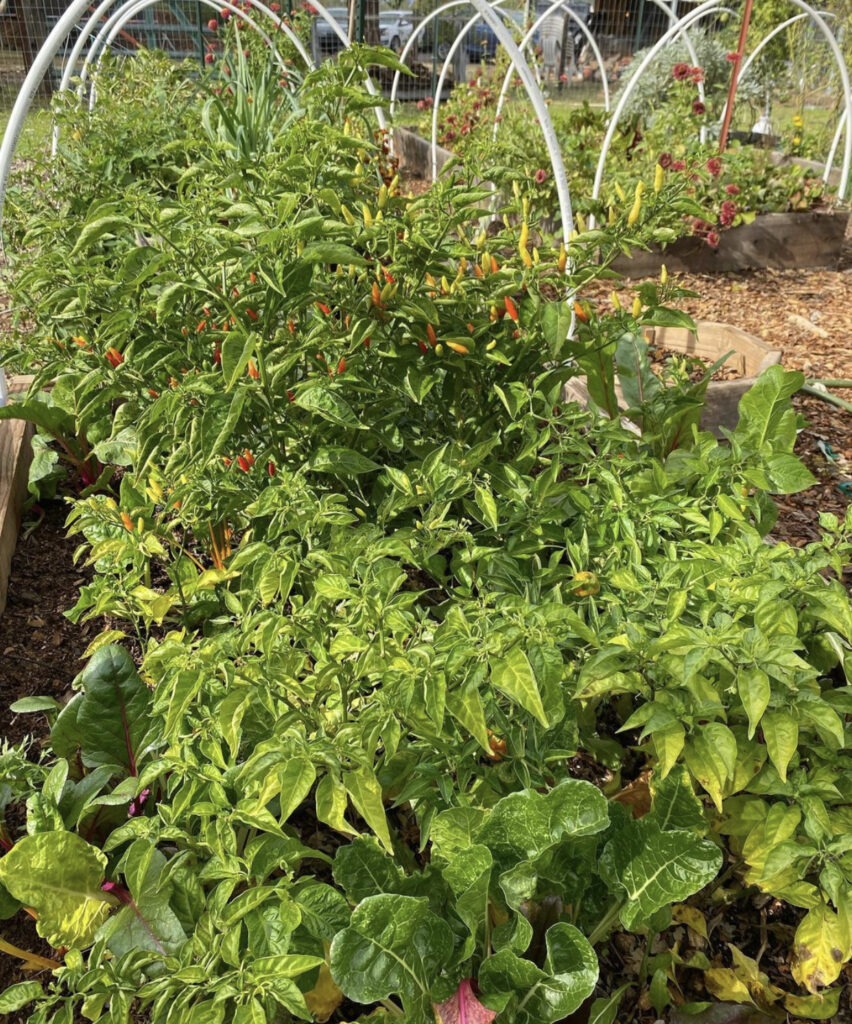
What are some must have tools in your garden shed?
Tools I love to have in my garden shed – I love good clippers. I have a rake and a couple kind of shovels. Hand trowels are a must. I like getting my hands dirty, so I don’t really use garden gloves unless I am foraging wild blackberries and protecting my hands from thorns.

I like garden tape – both the stretch plastic kind and the velcro reusable kind because I like to grow things vertically and it helps to secure things.
I don’t do a lot of fertilizing, but mostly feed my soil with good compost, but I do love to have fish emulsion to feed my plants with once in a while as well as some worm castings for when I first plant. I do have different organic fertilizers for my citrus trees and blueberries to help with acidity since we have clay alkaline soil. I also have some organic plant food for the other fruit trees, but I don’t use it much – I do prefer to feed with compost in the spring overall and use the wood chips that eventually breakdown and help as well.
I like a good spray nozzle and good hoses – I don’t do bug sprays, but will use a hose to get aphids and such off. I do like to have diatomaceous earth on hand, both to put in the nesting beds for the chickens and for the garden beds when we have a lot of pests I will put it on the soil level once or twice to help in a more organic way.
Should we look to cover our garden in the winter? If so what should we be using to cover?
Covering your garden in the winter largely depends on where you live. I have fall/winter gardened for several years and this is the first year I have hoops – mostly to extend the life of my peppers which are more temperature sensitive. Many winter veggies like broccoli, kale, cabbage, carrots, and beets are very hardy for our zone 9, so we don’t get low enough to hurt them and can even grow lettuce all winter uncovered. I only cover if we have a very low low forecast, and that will just be my young citrus that aren’t fully established yet and mainly my lettuce that might get a little affected.
Now if you are in a lower zone, you may need to cover completely if you want to grow over the winter. Or if you are resting your beds for the winter, I absolutely encourage you to mulch it heavily with aged wood chips or straw so that you can prevent weeds from taking over in the spring. I barely have any weeds at all ever because of mulching and having raised beds – I don’t have bare soil showing ever.
When should we start closing our garden down for the winter months?
When you close down your garden completely depends on your garden zone. I would encourage new gardeners to find out your zone and look up recommendations for your specific area, as gardening varies so much based on the weather in your location.
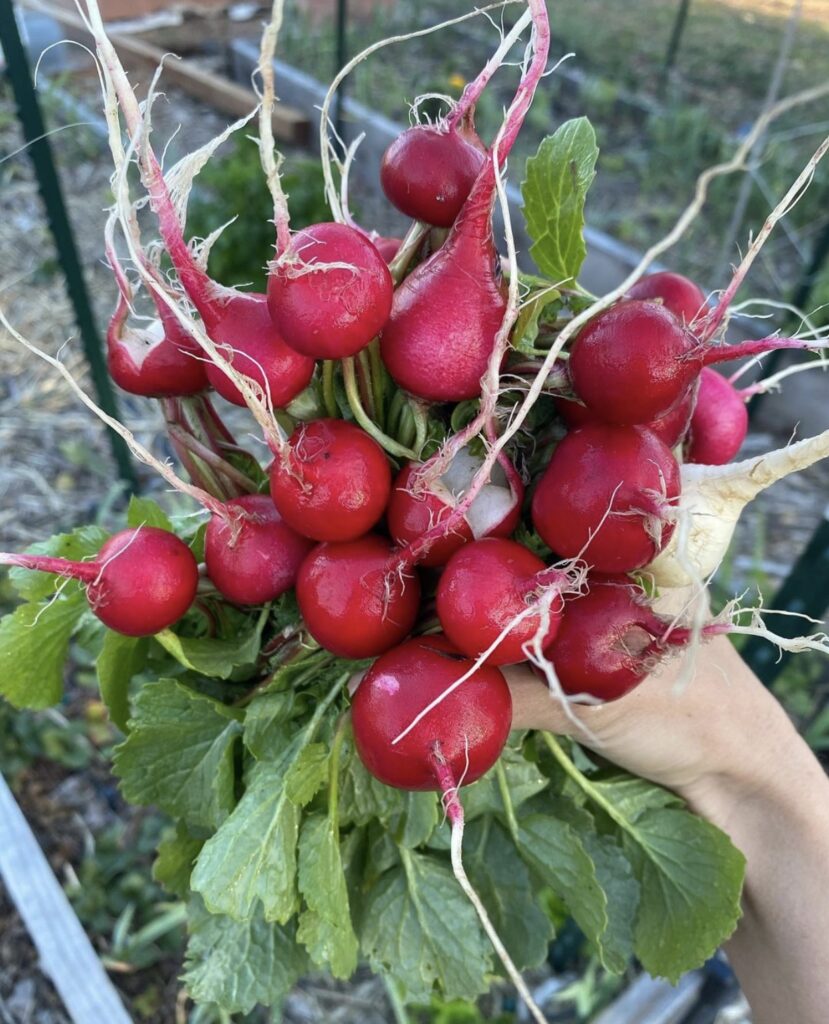
Should old plants be pulled from the garden as part of preparing your vegetable garden for winter?
I personally do not pull old plants, but I cut them at the soil line and then compost them if they aren’t pest and diseased ridden. I have found that the modified No Till method in my raised beds and the mulching I do with wood chips that is borrowed from the Back to Eden method combined have really made weeds pretty much non-existent.
I know there are different thoughts on this, but I prefer to not disturb the soil as much as I can. I feel like this has been very beneficial to the health of my raised beds and I will just mulch over the little stump and let it compost into the rest of the soil and feed it as it decomposes.
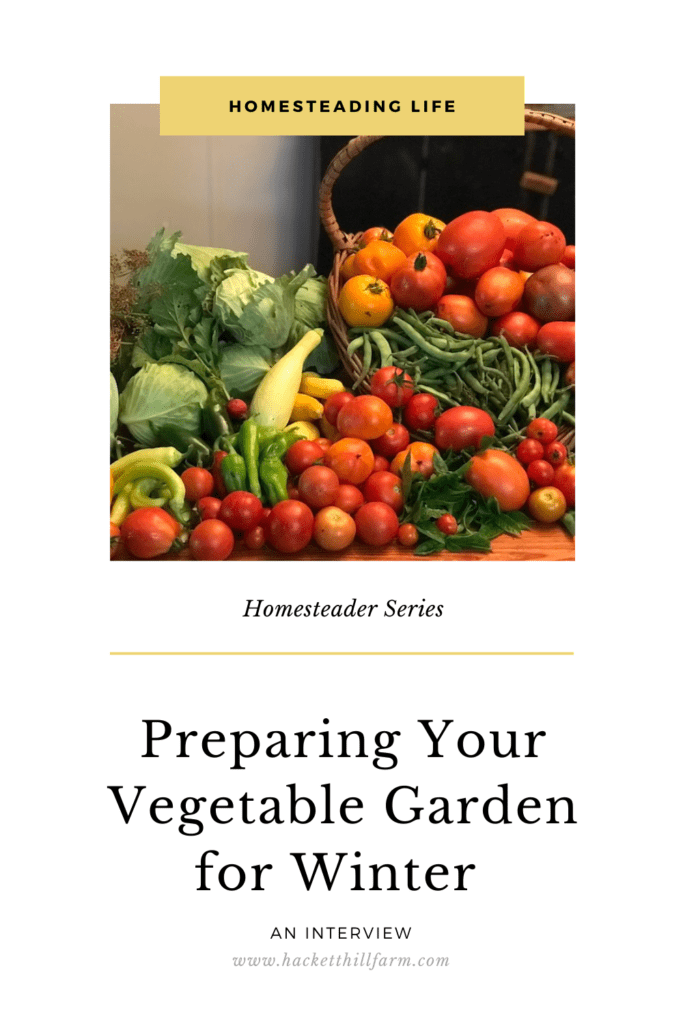
The Homestead Series
We hoped that you loved this newest addition to our Homestead Series. You can check out more from our homesteaders in these great posts! Leave us a comment below to let us know how you prepare your homestead for winter!
- Preserving Food Through Dehydrating with Halfway to Homesteading
- Herbal Remedies with It’s My Sustainable Life
- Seed Saving with The Homestead Mother
- Preparing Bee Hives for Winter with Cara Nitz
Keep an eye out for more great posts from our homesteaders, and don’t forget to check them out on their sites and social media profiles!
Happy Homesteading!
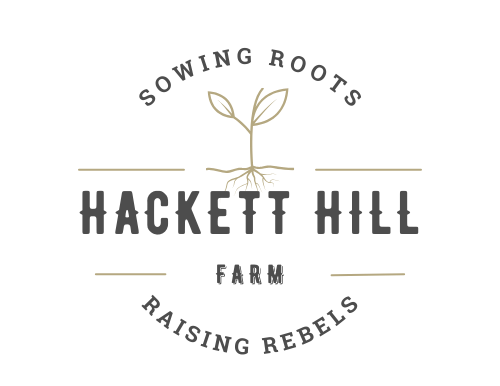

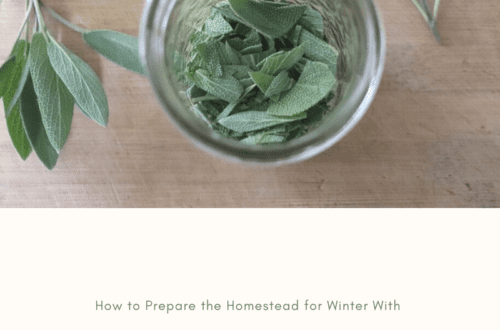
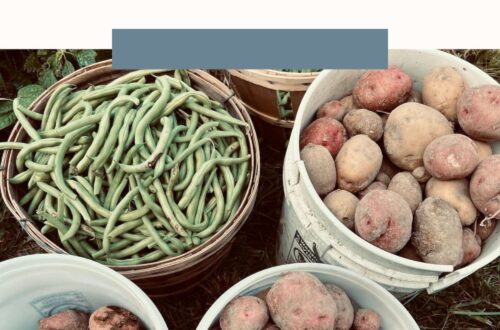

8 Comments
Paul (Paul Explores the World)
Great and informative post! I need to start composting to help with my beds. I have a bunch of broccoli growing for the cold months but they don’t seem to be doing well! 😭
hacketthillfarm
We love composting as a way to not only feed our garden, but to also cut down on waste. What seems to be the issue with your broccoli this year? Hopefully it turns around!!!
Charis
Thank you so much for the interview and feature! So happy to encourage others to grow their own food and to make their gardening sustainable.
hacketthillfarm
Thank you for being a part of this series!
Ruth| Ruthiee loves Glamour
I do not have a vegetable garden but I love this post a lot. I have been wanting to start my own garden for a while now but I just haven’t had the time. At least I know how to prepare my vegetable garden for winter now. Thank you for sharing x
hacketthillfarm
Thank you! I am so glad you liked it!
Eleanor
Wow this is great! I would love to grow my own vegetables one day x
hacketthillfarm
Container gardening is an easy and inexpensive way to start growing your own veggies! 🙂